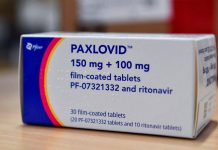The shares of Viatris, an American global healthcare company that manufactures generic drugs, look cheaper but is it a value trap?
Check what Motley Fool, a company that provides free and premium investment guidance to millions of individual investors around the world, has to say.
Motley says Viatris currently boasts a forward price-to-earnings (P/E) ratio of 3.8 and a forward price-to-sales (P/S) of 0.9. For context, the average forward P/E of the pharma industry is 12.4, while a P/S ratio less than one is generally considered attractive.
So is Viatris’ stock worth buying at current levels?
Headquartered in Canonsburg, Pennsylvania, Viatris was formed through the merger of Mylan and Upjohn, a division of Pfizer, on November 16, 2020. The transaction seems to have benefited both Mylan and Pfizer.
Generic drugmakers tend to make a lot of money by introducing generic versions of brand-name blockbuster drugs, which highlights the importance of patents for drugmakers.
Introducing a new drug to market is a rigorous process as it requires the manufacturer to spend a lot of money on research, development, clinical and regulatory hoops, advertisements, and marketing.
Companies that launch new drugs have the right to sell the drugs for a certain number of years without any competition – thanks to patent protection law.
However, once the patent is expired, the law allows other companies, like Viatris and Teva, to introduce cheaper generic versions, stealing some market share away.
Generic drug companies do face a problem of competition. They can make generic versions of the same medicine it is targeting, having little competitive advantage.
Having said that, Viatris boasts something north of an impressive 2,100 generic products in more than 35 markets worldwide, making it the largest player in the industry.
Furthermore, Viatris owns reliable brands such as Viagra, Lyrica, Xanax, among others. It also has other popular products in addition to the aforementioned brands.
Nearly 75% of the company’s products include complex generic drugs and biosimilars, which are difficult to produce and therefore face less competition on the market.
However, the company’s current results do not look too impressive. In Q3 of 2020, Viatris reported a 4% decrease in sales compared to the year-ago period, considering that Mylan had already teamed up with Upjohn in Q3 of 2020.
Viatris is unlikely to outperform the broader market, despite its low valuation metrics, according to Motley. However, for investors looking for a company with a stable business and a solid dividend, it is worth purchasing shares of Viatris.























